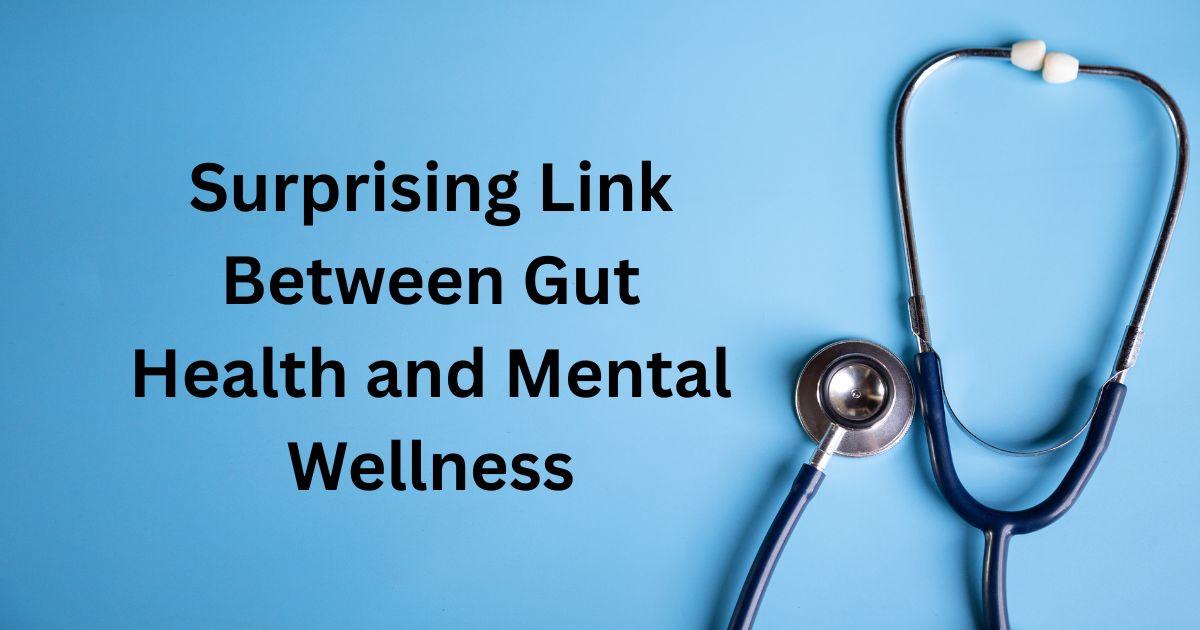Surprising Link Between Gut Health and Mental Wellness

Did you know your gut might be the key to your emotional well-being? While mental health is often associated with brain chemistry and emotional triggers, new research in 2025 reveals an unexpected player in this equation—your gut. Often called the “second brain,” your digestive system houses trillions of microbes that don’t just digest food—they influence your mood, memory, and mental clarity. Understanding this gut-brain connection could be the game-changer you’ve been searching for in your daily health care routine.
As health and wellness tips continue to evolve, one thing is clear: the relationship between gut health and mental wellness is more than a trend—it's a transformation in how we view both physical and emotional care. Whether you're looking to feel less anxious, boost energy, or improve focus, supporting your gut might be the most holistic approach to mental wellness yet.
Science Behind Gut-Brain Axis
The gut and brain communicate through a complex network known as the gut-brain axis. This connection involves the vagus nerve, immune system, and microbial metabolites that send signals from your gut to your brain and vice versa. These microbes produce neurotransmitters such as serotonin (often called the “happy chemical”), dopamine, and gamma-aminobutyric acid (GABA), all of which directly impact your mood and stress response.
Modern health related articles confirm that approximately 90% of serotonin is produced in the gut. This means your digestive system has a more direct role in managing emotional balance than previously understood. It’s no wonder top healthy living blogs and top mental health blogs are buzzing about this connection—because nurturing your gut could be the most natural remedy for mental fatigue.
How Gut Imbalance Affects Your Mood
An imbalanced gut microbiome—caused by poor diet, stress, antibiotics, or lack of sleep—can trigger systemic inflammation. This inflammation doesn’t just lead to bloating or acne. It also increases the risk of depression, anxiety, and cognitive decline. According to recent findings featured in several interesting health related articles, inflammation in the gut can disrupt the blood-brain barrier, potentially leading to neurological symptoms.
This is where simple health tips can truly make a difference. Small adjustments to your diet and routine can enhance the quality of your gut flora and therefore reduce the risk of chronic mental health issues. These improvements don’t require drastic changes—just smart, strategic steps backed by expert health advice and article research.
Dietary Tweaks That Support Gut Health and Mental Wellness
Nutrition plays a pivotal role in maintaining a thriving microbiome. Some easy ways to improve your gut health include:
-
Eating more fiber from sources like oats, lentils, apples, and leafy greens.
-
Incorporating fermented foods like yogurt, kimchi, and kombucha that supply beneficial probiotics.
-
Reducing sugar and processed food intake to lower inflammation.
-
Drinking plenty of water and green tea to aid digestion and antioxidant balance.
Following these tips aligns well with today's health wellness advice, helping you gain better control of both your physical and emotional health. In fact, many health related blogs advocate for gut-conscious diets as part of holistic care strategies.
Pairing gut-friendly meals with a best skincare routine can also reflect the internal benefits outwardly. A balanced gut leads to clearer skin, better sleep, and more stable moods, all of which contribute to your confidence and daily performance—whether you're exploring a new career opportunity or simply trying to stay focused at work.
Stress Management Techniques That Support Gut-Brain Balance
Chronic stress harms your gut, and an unhealthy gut intensifies stress—a vicious cycle. To break this loop, consider integrating these practices into your lifestyle:
-
Mindful eating: Focus on your meals and chew slowly.
-
Regular movement: Exercise promotes diversity in gut bacteria and releases mood-enhancing endorphins.
-
Breathwork and meditation: These reduce cortisol levels, helping your gut function optimally.
-
Quality sleep: Sleep heals the gut and supports mental restoration.
You don’t need expensive programs or complicated apps. These physical healthcare and medical tips are accessible, science-backed, and effective. Many professionals featured on health and wealth blogs now emphasize mindfulness as much as meal plans in optimizing total well-being.
Gut-Mental Connection in Women’s Health
Women often face unique challenges related to hormonal shifts, digestion, and emotional health. Research in 2025 suggests that a healthy gut can help balance estrogen levels, reduce PMS symptoms, and even ease menopause-related mood swings. No wonder women health tips are increasingly focusing on gut wellness as a cornerstone of hormonal health.
For women navigating busy lifestyles, combining a healthy diet, moderate exercise, and probiotic supplements can significantly improve energy, clarity, and emotional balance. These aren’t just fads—they are part of the best health tips for long-term, sustainable wellness.
Bridging Gap Between Traditional and Modern Wellness
With the rise of functional medicine and integrative approaches, more people are searching for holistic healing methods. This shift reflects a larger trend in health tips and advice: understanding how each system in your body supports the other. The gut isn’t isolated; it’s central to your immune system, hormones, and mood.
Even within fashion blogs or lifestyle spaces, this trend is visible. People now want more than surface-level beauty—they’re seeking radiant health from within. If you're working with an SEO consultant or building a brand in digital marketing services, consider tapping into this growing audience interested in real, actionable wellness strategies.
FAQ: Gut Health and Mental Wellness
Q1: Can probiotics improve my mood?
Yes! Studies have shown that certain probiotic strains like Lactobacillus and Bifidobacterium can reduce anxiety and depressive symptoms by supporting gut balance.
Q2: How long does it take to notice changes in mood after changing my diet?
Most people report improvements within 2–4 weeks of consistent dietary changes and gut support.
Q3: Are there any warning signs of poor gut health?
Yes, including bloating, fatigue, frequent illness, poor concentration, skin issues, and mood swings.
Q4: What role does sugar play in mental wellness?
Excess sugar can lead to inflammation and feed harmful bacteria in the gut, negatively affecting mood and focus.
Q5: Is there a connection between gut health and skincare?
Absolutely. A healthy gut reduces systemic inflammation, which often results in clearer, healthier skin.
So, what do you think—could your gut be the missing piece in your mental wellness journey? Have you ever noticed a connection between what you eat and how you feel? Let us know your thoughts or share your own health wellness advice in the comments below!





